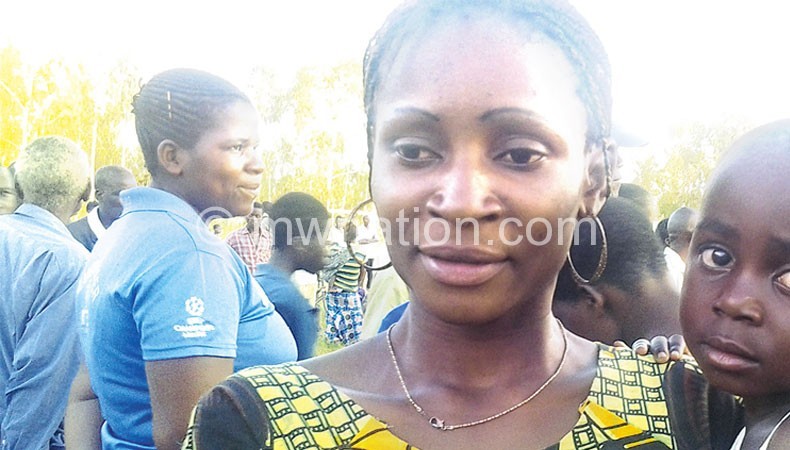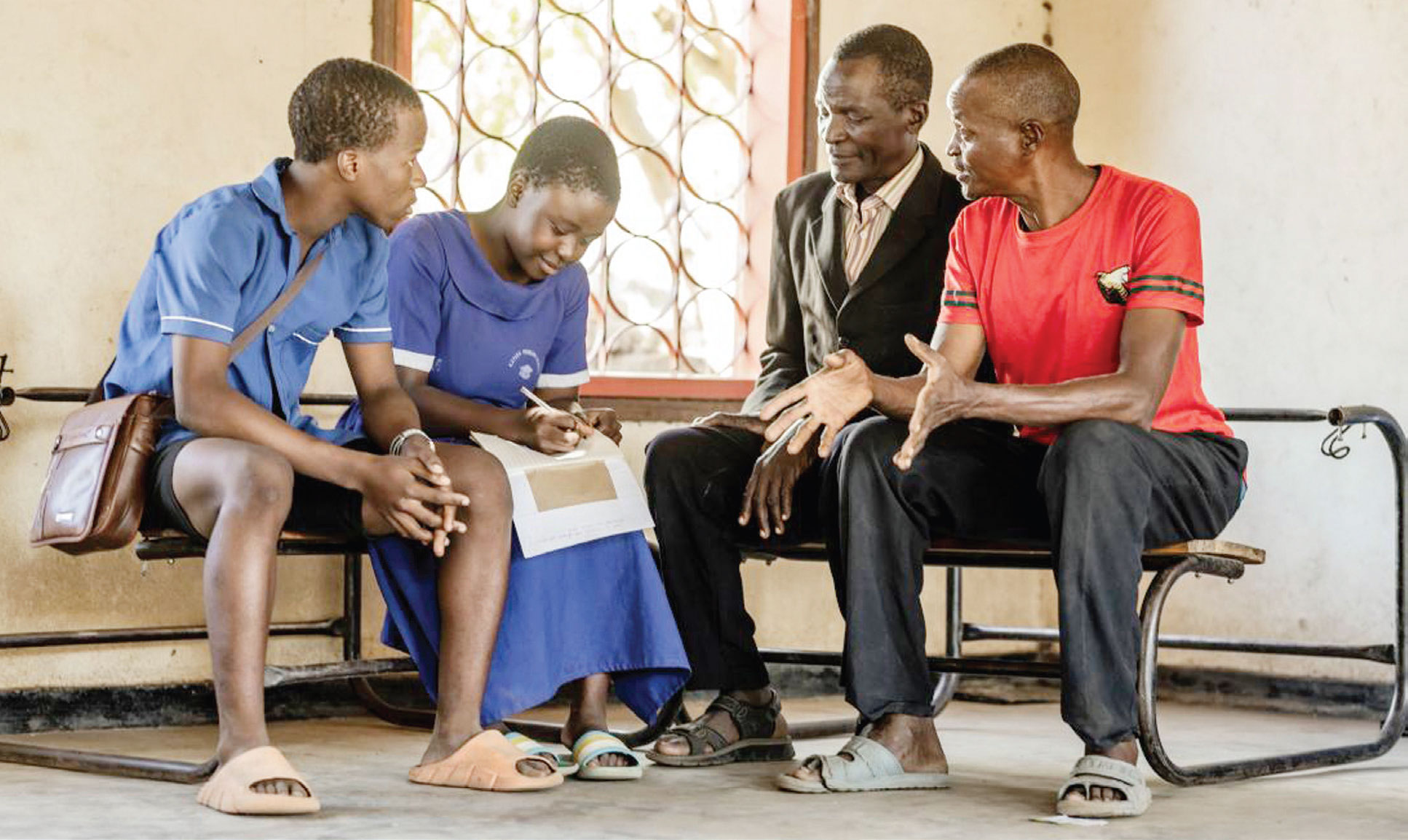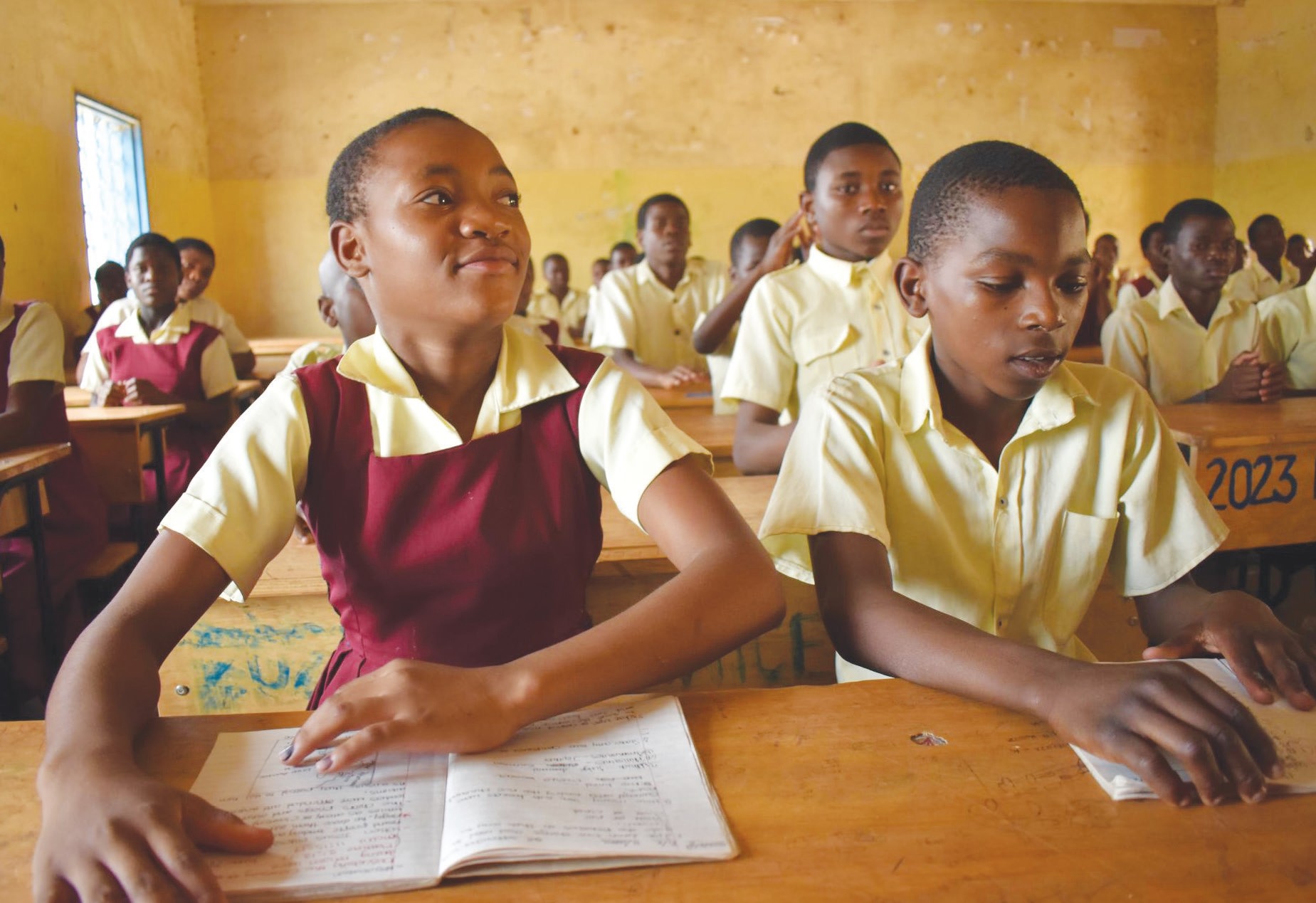Championing gender through Marriage Bill

A new report by the Human Rights Watch (HRW) reveals the many challenges that women and girls in Malawi face as a result of early marriages. The report is based on interviews with 80 girls and women in six districts in the South and Central regions.
Titled I’ve Never Experienced Happiness’: Child Marriage in Malawi, the report documents how child marriage prevents girls and women from participating in all spheres of life. The practice violates the rights to health; to education; to be free from physical, mental and sexual violence; and to marry only when able and willing to give free and full consent.
“I married when I was 15. I did not want to marry, but I agreed because of poverty at home,” says 23-year-old Chancy Mwethiwa, one of the women interviewed in the report.
Mwethiwa, whose husband is 30, says she has found marriage very difficult.
Similarly, Lucy Piringu, 17, who dropped out of school in 2011, told HRW: “I got a boyfriend who could look after me because my parents are poor. After some time, I became pregnant and my mother forced me to marry him.”
Africa women’s rights researcher at HRW Agness Odhiambo says adolescent pregnancy is a key driver of child marriage in Malawi.
“Girls lack the power to negotiate safer sex with men, do not know about contraception, and are forced by their parents to have sex for money or food. Many end up becoming pregnant and being forced into marriage by their families,” Odhiambo notes.
Government statistics show that between 2010 and 2013, 27 612 girls in primary and 4 053 girls in secondary schools dropped out due to marriage.
During the same period, another 14 051 primary school girls and 5 597 secondary school girls dropped out because they were pregnant. According to the 2010 Demographic Health Survey (DHS), Malawi’s literacy rate for men is 74 percent and 57 percent for women.
This supports United Nations (UN) statistics that half of the girls in the country will be married by the age of 18, with some as young as age nine or 10 being forced to marry.
In the report, HRW calls on President Joyce Banda to publicly support prompt enactment of the Marriage, Divorce, and Family Relations Bill (Marriage Bill), which includes vital protections against child marriage.
“Malawi needs to set a lawful minimum marriage age to protect girls from the abuse, exploitation and violence that results from child marriage. Banda should ensure a lasting legacy for her first term in office by passing the Marriage Bill, which supports the rights of the country’s girls and women.” said Odhiambo.
Secretary of Gender Mary Shaba says mechanisms are already in place to have the bill enacted in view of the many challenges women and girls face in various societies.
“It’s not that we are staying idle. Currently, we are consulting all key stakeholders such as chiefs, lawyers and various organisations because the marriage age issue remains contentious,” she says.
Luchenza-based Martha Semani, 20, says the bill will give girls enough time to finish school and avoid birth-related complications in case of early marriages.
“I strongly believe that all issues that are raised in the bill seek to promote women in areas of health, education and human rights, but my concern is that it is taking long to make it into law. Most women and girls are still victimised in many ways,” says Semani.
The proposed Marriage Law seeks to put 18 as minimum age of marriage for girls and boys, addressing a major shortfall in Malawi’s efforts to protect girls against child marriage. It would give equal status to parties in all marriages, and would require that all marriages, including customary ones, be registered with a competent authority.
According to HRW, girls are pressured to marry by family members keen to receive dowries, because they were pregnant or they themselves saw marriage as a route to escape poverty.
The organisation found that child marriage exposes girls to gender-based violence, including domestic and sexual violence. Some girls who rejected forced marriages said they were threatened, verbally abused or thrown out of their homes by their families.
Others said they were verbally abused or physically assaulted by their husbands and in-laws. Still others said their husbands abandoned them and left them to care for children without any financial support, increasing the likelihood of their being impoverished.
Semani is at pains that few girls in the country know they have the right to seek help and protection from violence.
“Government’s failure to mitigate the far-reaching harms of child marriage could have negative implications for the future development,” says the mother of one.
Early marriages affect young girls’ reproductive health systems, often leading to obstetric fistula, premature delivery and anaemia.
The country’s maternal mortality rate is high at 675 deaths per 100 000 live births, according to the Ministry of Health, which also talked about the avoidable costs of early pregnancy to the healthcare system.
Ministry of Health spokesperson Henry Chimbali says investment in health care is being looked into with special attention, knowing that healthy citizens are essential to the development of the nation.
HRW has since urged government to take immediate and long-term measures to protect girls from early and forced marriage and ensure the fulfillment of their human rights in line with its international human rights obligations.
The report released today, ahead of the International Women’s Day on March 8 2014 says Malawi should increase efforts to end widespread child and forced marriage, or risk worsening poverty, illiteracy and preventable maternal deaths in the country.
Government says Malawi will observe the day under the theme Malawi Women Arise, derived from the international theme of Equality For Women, Progress For All.
“Men have ruled this country before and we now have a female president, hence the theme. This is why we also want to ensure that the Gender Act is utilised at the same time have the Marriage Bill passed into law once we finish consultations,” says Shaba.





